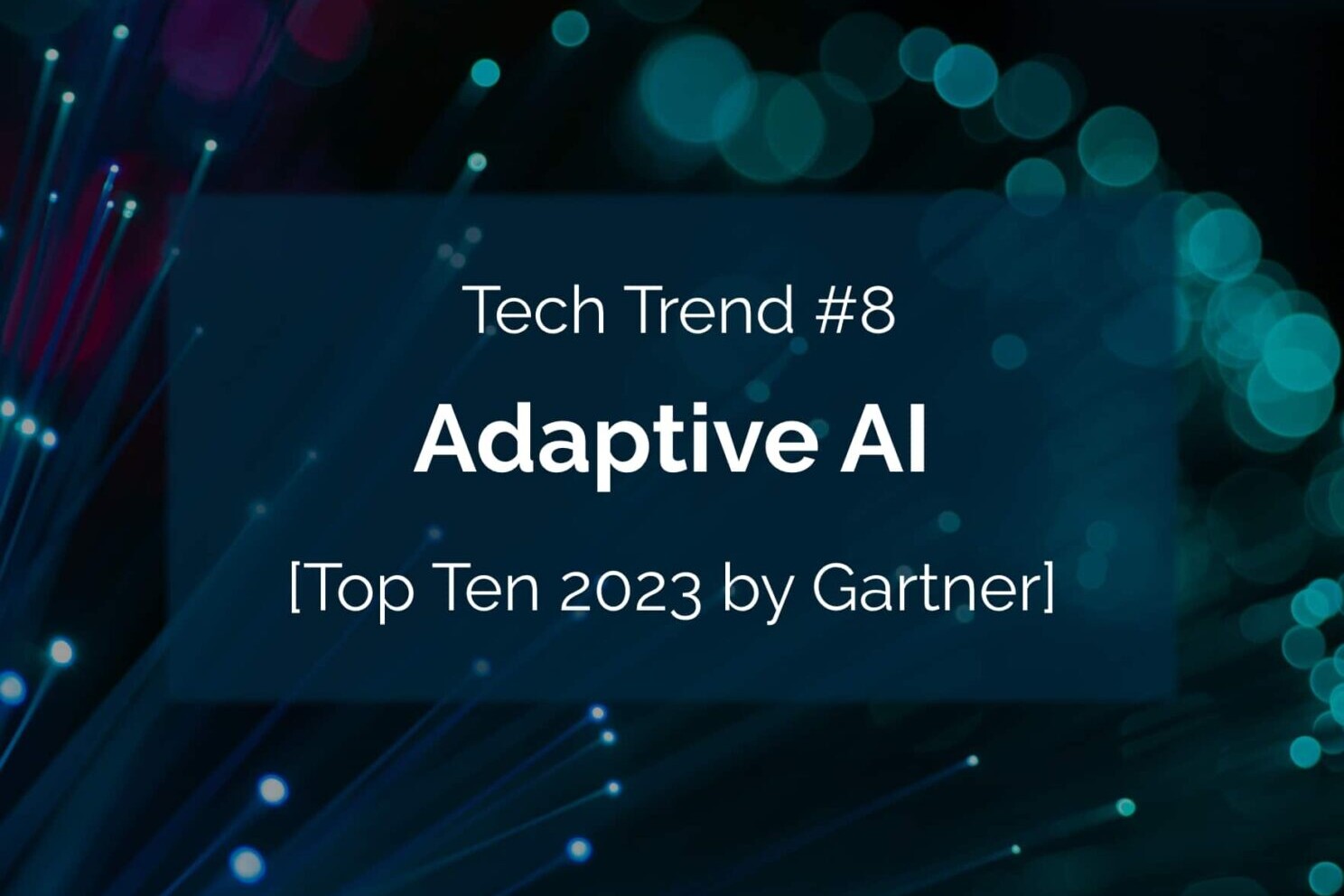Tech-Trend #8: Adaptive AI
Adaptive AI can rework its own code to adapt to changes in the real world. Learn more about this tech-trend and how you can address it in your business here.
For the coming years, the U.S. research and consulting firm Gartner sees four priorities that companies can address with the help of various technology trends. On this basis, Gartner names and categorizes the 10 most important strategic technology trends for 2023. (centron reported)
As the eighth of these ten tech trends, we would like to introduce adaptive AI in this post. Gartner prioritizes this trend as “pioneering customer engagement, accelerated response or opportunity”.
Adaptive AI
Unlike conventional AI systems, so-called adaptive AI can revise its own code and thus adapt to changes in the real world. More specifically, adaptive AI systems aim to continuously retrain models or apply alternative mechanisms to adapt and learn.
With this type of artificial intelligence, companies can integrate adaptability and resilience into their design, as well as respond more quickly and effectively to disruptions. Especially in times of crisis (cue corona pandemic or climate crisis), flexibility and adaptability are essential for companies.
Decision-making in particular is a critical and increasingly complex activity for any company. In order to make use of adaptive AI here, the existing process architecture must be adapted. Among other things, companies must ensure the ethical use of AI in terms of compliance and regulations.
In addition to the organizational basics, the foundations for adaptive AI systems must also first be laid. To do this, current AI implementations are augmented with design patterns for continuous intelligence and event stream capabilities. Then, it is possible to move to agent-based methods to give system components more autonomy.
According to a Gartner forecast, companies that have adopted AI engineering practices to build and manage adaptive AI systems by 2026 will outperform their peers by at least 25 percent in terms of the number and time required to operationalize models of AI.
Source: Gartner


